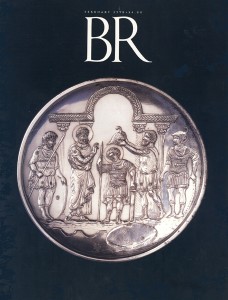Upstaging the Emperor
Luke placed a time bomb alongside the central symbol of Roman imperial power: The divine Lord of the world is not Caesar, but Jesus.

Modern readers puzzle over the story of the Ascension in Acts 1:9–11. We recognize that “heaven” is God’s dimension of reality rather than a far-off place within ours; so why did Luke describe Jesus traveling upwards to get there?
The startling answer challenges conventional readings that see Luke and Acts as politically quiescent. Luke, drawing on Jewish sources about the vindication of God’s people, was challenging the Roman belief in the divinity of the emperor. Luke’s Jesus is the Jewish Messiah, who is also the true Lord of the world.
The biblical background for the Ascension story is Daniel 7. The beasts wage war on the people of God; then “one like a son of man” is exalted on the clouds of heaven to sit beside “the Ancient of Days.” Luke has already told us (Luke 21:27) that this will happen to Jesus after his suffering; now it does. Luke knows that Daniel 7 contains apocalyptic metaphors investing Israel’s last great battle with cosmic significance. Here he uses that language to give Jesus’ departure its full meaning.
Already a library member? Log in here.
Institution user? Log in with your IP address.

